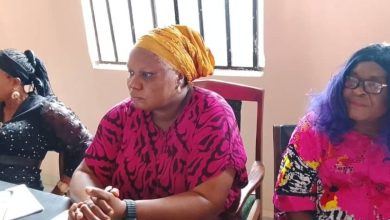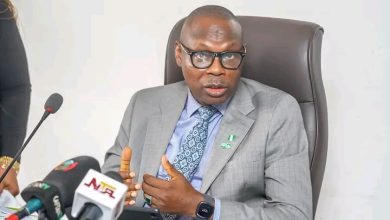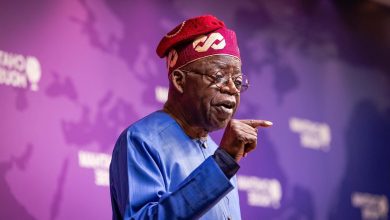Healthcare or Hardship? 75% of Nigerians Forced to Self-Fund Medical Care
Nigeria’s healthcare crisis has deepened as over 75 percent of citizens still pay medical bills from their own pockets, a burden that experts warn is driving widespread health inequality and preventable deaths.
At the launch of the Impact Healthcare Group in Abuja, stakeholders unveiled a bold initiative to unify private health providers and tackle systemic issues like underfunding and medical tourism.
More than 75 percent of Nigerians are forced to cover their healthcare expenses directly from their own pockets, a troubling statistic that experts say has become a major contributor to poor health outcomes across the country. Health stakeholders, including private investors and hospital owners, voiced strong concerns about this unsustainable trend at the unveiling of the Impact Healthcare Group in Abuja, an initiative aimed at restructuring and strengthening the nation’s fragmented private healthcare sector.
The launch event brought together key figures from both public and private healthcare institutions, investors, and policy advocates to address core issues affecting Nigeria’s health system, including underfunding, fragmented service delivery, and the loss of medical professionals to brain drain. According to the group, these systemic challenges must be addressed urgently to prevent further deterioration in the nation’s health indicators.
Ayodele Benson, the convener of the Impact Healthcare Group, emphasized the pressing need to transform healthcare financing in the country. He expressed dismay at the alarming rate of medical tourism, which is draining the country’s financial resources. According to Benson, Nigerians spend an estimated $1 billion annually on overseas medical treatment. These funds, he said, could instead be invested in developing the domestic healthcare system.
Benson shared personal anecdotes to illustrate the situation, citing multiple recent instances where he had to escort patients abroad for treatment due to the unavailability of required medical services in Nigeria. One such trip to Israel required a $60,000 deposit just to initiate the visa application process with the hospital. This, he noted, is a clear indicator of the financial burden placed on Nigerian families seeking quality healthcare abroad.
“This level of capital flight is not only unsustainable, it is deeply inequitable,” Benson said. “Even if healthcare services within the country improve, the current model still leaves most citizens unable to access them simply because they cannot afford to pay.”
He highlighted that the Impact Healthcare Group was established to consolidate small and medium-scale private health businesses into a single, coordinated national network. The goal, according to him, is to achieve economies of scale, improve operational efficiency, and enhance financial sustainability. Among the group’s first offerings is a healthcare discount card that would allow Nigerians to access services at affiliated hospitals at a reduced cost of at least 10 percent.
The group is also working to launch a private health insurance scheme specifically designed for low-income populations and informal sector workers, groups that have traditionally been excluded from Nigeria’s limited insurance coverage.
Benson further called on the government to provide robust fiscal incentives to encourage more private investment in healthcare. He recommended targeted interventions such as energy subsidies, public-private risk guarantees, and tax holidays for healthcare businesses.
Chibuzo Opara, Co-founder and Chief Executive Officer of DrugStoc, also spoke at the event. He underscored the importance of making pharmaceutical products more accessible and affordable across Nigeria and the broader sub-Saharan region. Opara highlighted three major obstacles that continue to limit healthcare access: geographic constraints, financial limitations, and lack of health education among the population.
He pointed out that many healthcare entrepreneurs are more driven by impact than profit, noting that affordability and safety remain the guiding principles for most stakeholders in the sector.
“For us, the most critical priority is saving lives and ensuring that patients can access quality care safely. Keeping the business profitable is important, but it comes second to our mission,” Opara said.
He explained that roughly 70 percent of the cost of drugs in Nigeria comes from logistics and supply chain issues, while packaging contributes to the remaining 30 percent. Reducing these costs, he said, could have a meaningful impact on affordability for the average Nigerian.
Opara also praised the launch of the Impact Healthcare initiative, describing it as a timely platform that has the potential to unite the fragmented voices of the private sector and create a more coordinated, responsive healthcare system.
Representing the Federal Government, Nasir Sani-Gwarzo, who stood in for Abdu Mukhtar, the National Coordinator of the Presidential ‘Unlocking Healthcare Value Chain’ Initiative, announced several new government-backed efforts to revitalize the sector. These include securing a $1 billion facility from Afreximbank and removing Value Added Tax (VAT) on inputs for medical manufacturing through an Executive Order.
Sani-Gwarzo also referenced the Federal Ministry of Health and Social Welfare’s Strategic Blueprint (2023–2026), which seeks to streamline the entire healthcare value chain under a unified framework, encompassing budget, monitoring, and evaluation systems to drive accountability and better resource allocation.
According to him, while the government is responsible for setting policy and providing support, the real transformation will be led by the innovation and commitment of the private sector.
In his remarks, Senator Samaila Kaila of Bauchi North Senatorial District urged healthcare leaders at the event to turn their discussions into actionable strategies. He stressed that Nigeria’s healthcare system cannot afford to remain in its current state, calling for a coordinated effort to implement long-term reforms.
“The time for talk is over. We need to chart a new course for Nigerian healthcare with realistic, actionable plans that will make a tangible difference in people’s lives,” Kaila stated.
As the event concluded, it was clear that stakeholders shared a common vision: to build a more resilient, accessible, and affordable healthcare system for all Nigerians, one that no longer depends on the wealth of individuals but on the strength of collective innovation and investment.



